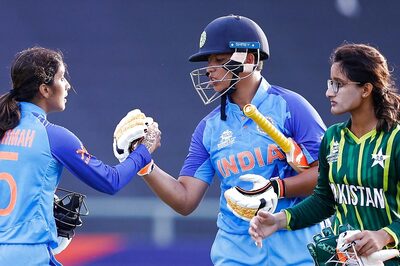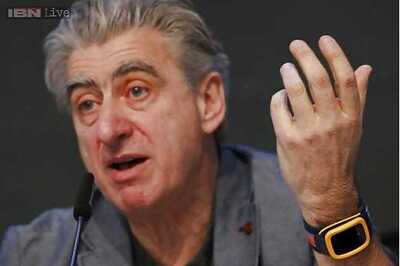
views
Kathmandu: Nepali Prime Minister Girija Prasad Koirala and Maoist chief Prachanda failed once again on Sunday to bridge key differences in their crucial peace talks, negotiators said. Both sides said they would meet again but set no date for fresh dialogue.
The main sticking points that have blocked a deal in the previous three rounds of talks in a week between Koirala and Prachanda were disputes over the disarming of the rebel army and the future of the monarchy in the impoverished Himalayan nation.
More than 13,000 people have died since the Maoists began an armed campaign in 1996 to turn Nepal, one of the world's poorest countries, into a Communist state.
"Today's meeting ended without any decision," Tourism Minister Pradip Gyanwali, a government negotiator, told Reuters. "We'll meet again after more homework and dates will be decided through mutual consultations." The rebels also said more preparations were needed before the next round.
"The meeting could not take any decision on the main political agenda," said Dev Gurung, a Maoist negotiator. Another rebel leader said the talks were stuck "on the issue of arms management".
Both sides had said they had been "very close" to a breakthrough at the end of each previous round of talks.
Prachanda and other rebel negotiators were guarded by Maoist guards on motorcycles and vans as they arrived at Koirala's high-security residence for the talks.
Maoist cadres with headbands with the red star symbol on them stopped traffic and pedestrians in the area as hundreds of their supporters carrying placards and banners reading, "Conclude peace talks quickly" demonstrated outside the venue.
The Maoists have said they would launch street protests and bring the capital Kathmandu to a halt if talks failed. The edgy peace process began in May soon after King Gyanendra ceded absolute powers following democracy protests organised by political parties and supported by the Maoists.
The two sides have already agreed for elections to a constituent assembly to be held by June 2007, a key Maoist demand to end their anti-monarchy revolt. Koirala insists the rebels surrender their weapons before joining an interim administration that is meant to oversee elections for the Assembly, which will draft a new constitution. The Maoists say they would rather stay out of the administration than lay down their weapons.
They also want the monarchy to be suspended pending the assembly vote or a referendum be held to decide its future.




















Comments
0 comment